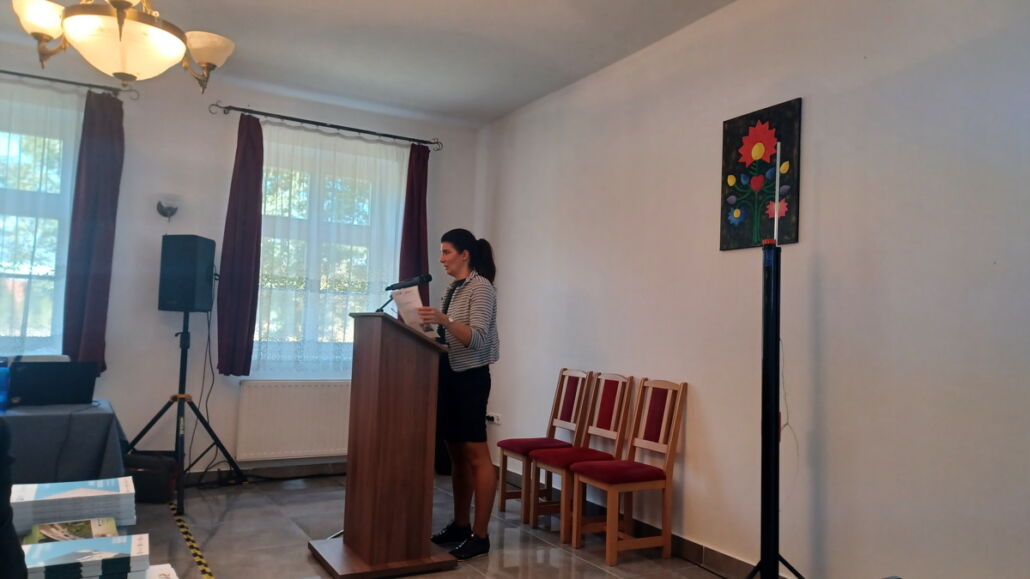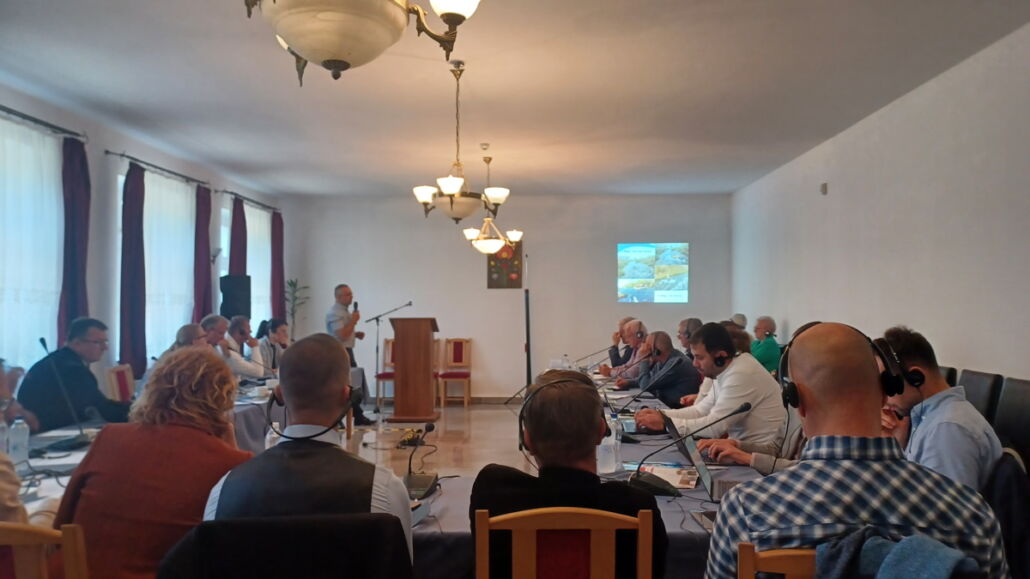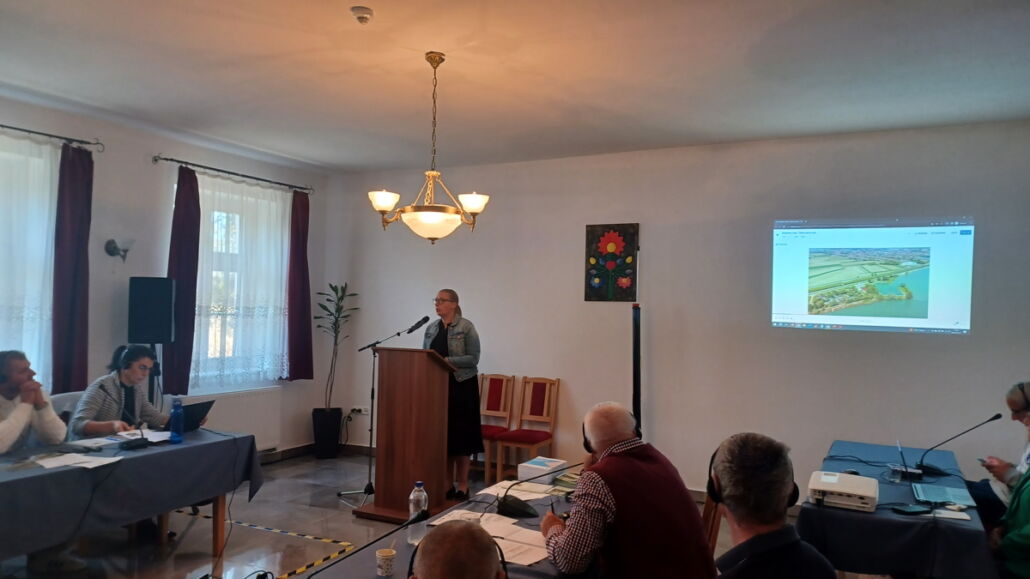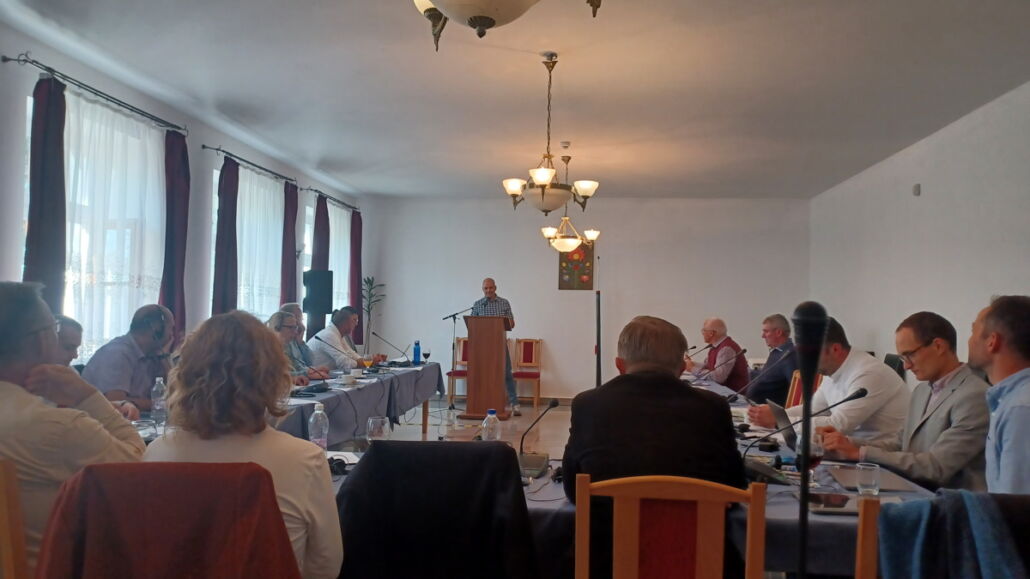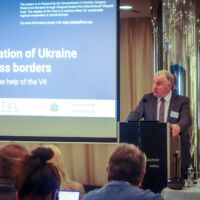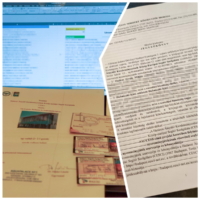Legal accessibility + Policy-making | 20 November 2023
Recent B-solutions projects on water tourism
CESCI has compiled a study and organised a conference within the framework of the B-Solutions project coordinated by the Association of European Border Regions (AEBR). As it is well known, the B-Solutions project, with the involvement of local actors, looks for legal and administrative obstacles that still exist at the borders and helps eliminate them, as well as popularises the way of elimination.
The study examined the legal and administrative background of the sometimes significant differences between the Hungarian and Slovak water tourism regulations and practice experienced by the Arrabona EGTC, with the involvement of Hungarian and Slovak experts; while the consultation organised in Tótszerdahely with the support of the Mura Region EGTC – regarding the Croatian-Hungarian border section – focused on the training of water tour guides and the legal regulation of their activities. The common goal of the legislative analysis, the interviews and the consultation that brought several actors to the table was to provide the involved actors with a clear picture of the current legal and administrative conditions, the differences at national level, as well as some development and harmonisation proposals.
The sudy initiated by Arrabona EGTC centers around the border river Danube, whose Hungarian side is characterised by an extensive active tourist region, which, on the Slovakian side, is under development, that provides joint development opportunities. However, for now there are only a small number of cross-border active water tourism products, thus an urgent goal is to establish an international system of safe, predictable, high-quality services, which can only be realised with precise knowledge of the relevant regulations.
The study includes the examination of Hungarian and Slovak regulations related to water tourism and the conclusions of personal and online interviews with Hungarian and Slovak water tour leaders and representatives of water transport authorities.
The obtained results partly confirmed the differences in the water tourism regulations of the two countries, and partly raised new problems. Given the differences at the systemic level, it is not possible to eliminate individual obstacles immediately, instead, it is necessary to establish a long-term foundation for the cooperation of the parties involved. The study is considered as a foundation, therefore, according to its proposal, the civil and official experts addressed should meet in person in the near future in order to develop solutions, getting to know each other’s points of view, and also mapping out the possibilities for moving forward arising from the relevant regulations.
The authors of the study are confident that the proposed expert meeting and its results will have a beneficial effect on the review of the water tourism regulations not only in Hungary and Slovakia, but also in other neighboring countries. This could result even in the development of a unified Central European regulative frame possibly in the coordination of the Arrabona EGTC.
Within the framework of the B-Solutions project, CESCI was also active on the Hungarian-Croatian border where the project focuses on the training of water tour guides and the legal regulation of their activities. The aim of the research is to formulate a recommendation promoting the harmonisation of different training systems, the cross-border recognition of the tour guide qualifications, and the increase of the mobility of tour guides, thereby solving the seasonal challenges typical for this profession.
During the study and the consultation and research processes that preceded it, the institutionalised network of tour guide trainings, the knowledge that can be acquired during the training, the current legal environment, regulatory and decision-making competences, the attitude of market players to the current situation, and all other obstacles that hinder cross-border cooperation in the field of tour guiding have been mapped out.
Based on the experience gained so far, the uncertain legal environment and tour guide training that provide different knowledge make it difficult to cooperate within the sector and to move towards institutionalisation. In order to resolve this, with the support of Mura Region EGTC, CESCI organised a conference in Tótszerdahely on October 11, 2023, entitled “Water tourism training and active tourism services in the Hungarian-Croatian border region”.
The purpose and progress of the B-Solutions project, as well as the natural values representing the development potential of the region and their sustainable utilisation through active tourism, were presented at the meeting. The new opportunities faced by the border area were highlighted, since with Croatia’s accession to the Schengen zone, the accessibility of the areas along the Mura and Drava and the utilisation of their tourist attractions will result in an unprecedented increase in the number of visitors. However, this poses a challenge for the countryside, as more attention must be paid to the protection of natural values and more coordinated operation of the water tour organisation in the future.
In order to achieve this, Dr. Gyöngyvér Lacza (associate professor of the Hungarian University of Physical Education and Sport Science) presented the ELESA project, which creates an opportunity for the harmonisation of tour guide training at European level. The main idea of the initiative is to create a joint (internationally recognised) basic education that includes the essential knowledge for tour guides, which all professionals involved in the topic must acquire and then develop further with special specialisation. To this end, all relevant EU member states should have an accredited training institution that can certify the knowledge of tour guides. In the case of professionals currently working as tour guides, it is necessary to assess and take their existing knowledge into account in order to determine whether they meet the new European standard.
The representatives of the Hungarian Kayak-Canoe Association, in view of the loose legal regulations regarding water tour guiding, proposed the launch of a similar accredited training, which would result in an interoperable system within the outdoor tour guiding market. This would be created as an official training in a certain place in the country, which would provide general knowledge about tour guiding (e.g. first aid, theoretical knowledge, psychological and pedagogical knowledge). After the completion of the general block, practical training would follow, which would have to be completed in several places, according to disciplines. These practical blocks would be implemented in the field, and the practical exam could also be taken locally.
In the final part of the consultation, good practices were presented, in which local tour guides and/or tourism specialists shared their experiences and knowledge about the local environment. It was agreed that the role of local water tourism would be significantly re-evaluated in the upcoming years, but the current infrastructure (e.g. the status/lack of ports, camp sites, roads) and the legal environment for tour guides are not yet prepared for this change. It is also a risk that the natural values of the Mura and the Drava will also attract tourists to the region who pay little attention to the preservation of natural values and the existing infrastructure. This will be difficult to be managed without cross-border cooperation of the authorities and tourism organisations. It is hoped that the B-Solutions project and the training proposals presented at the meeting will provide a suitable framework for dealing with these challenges.
